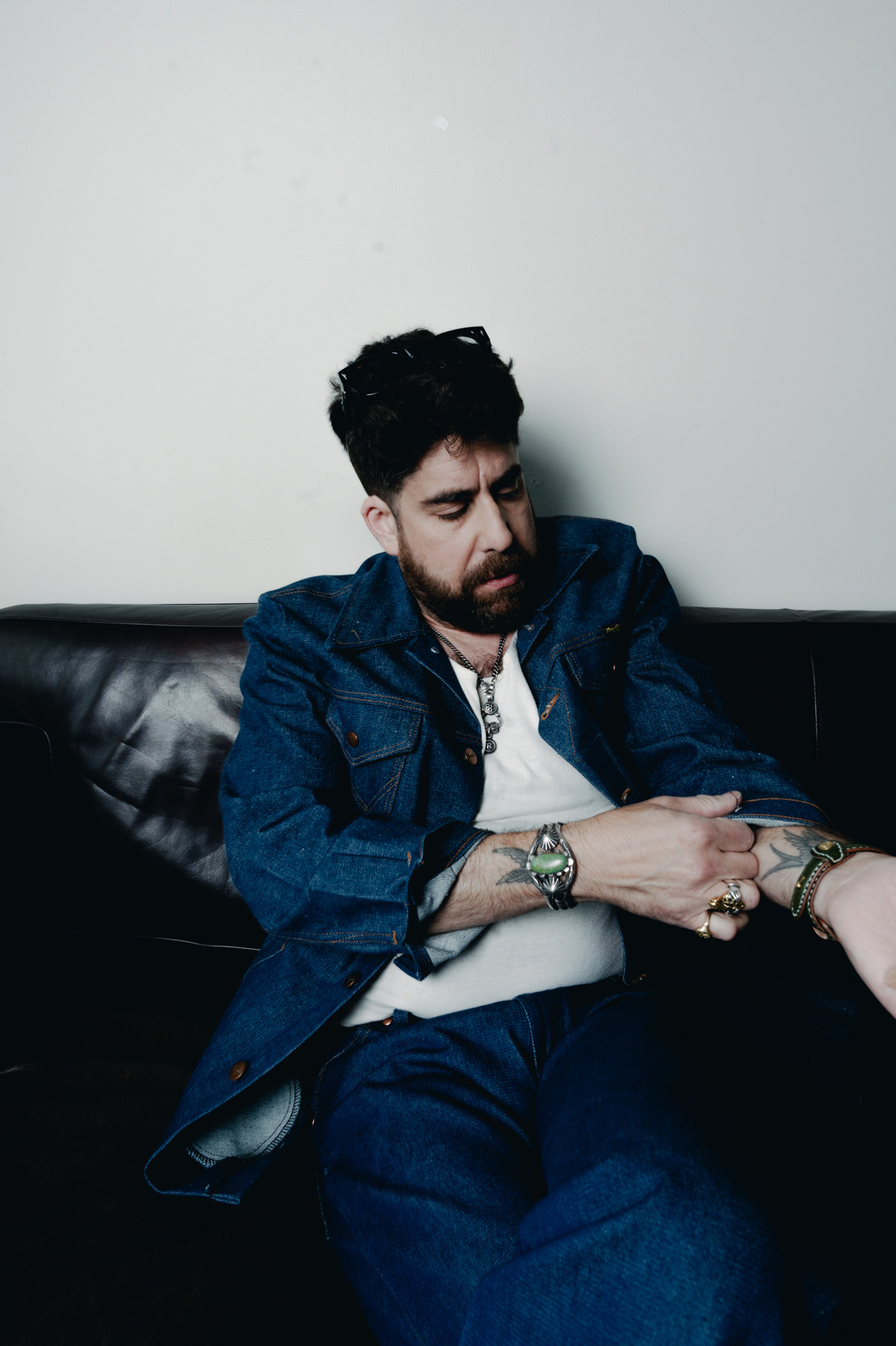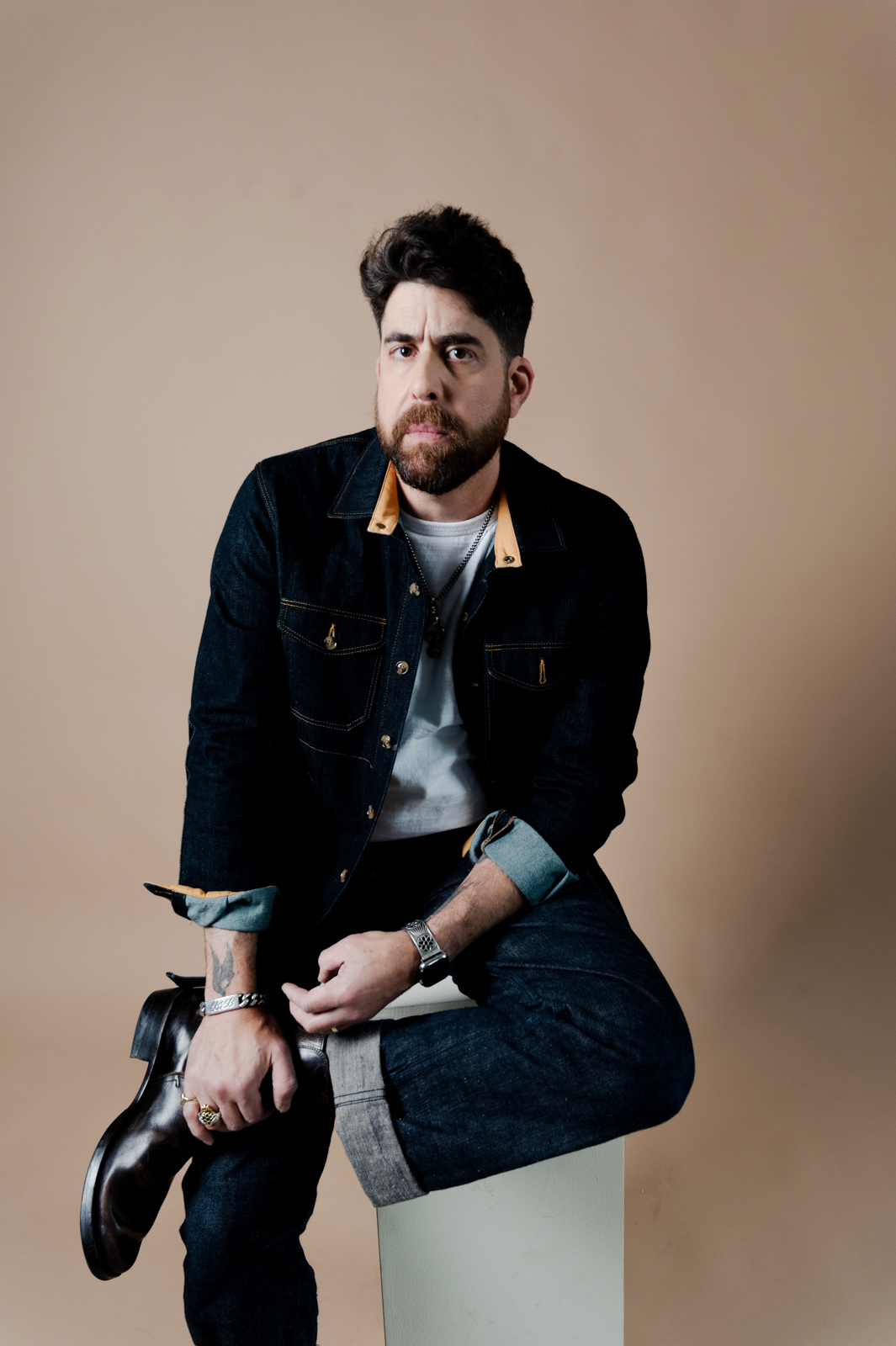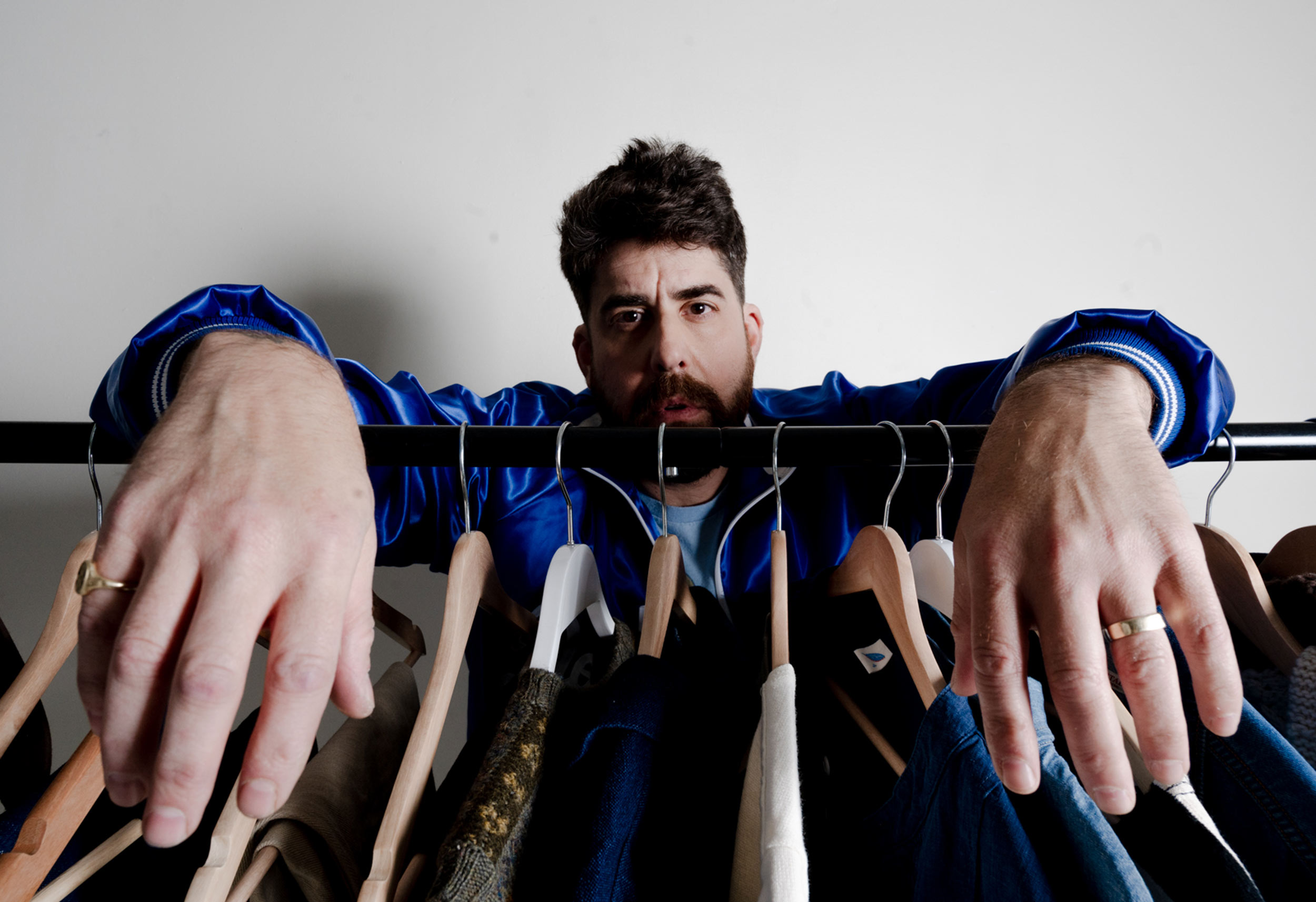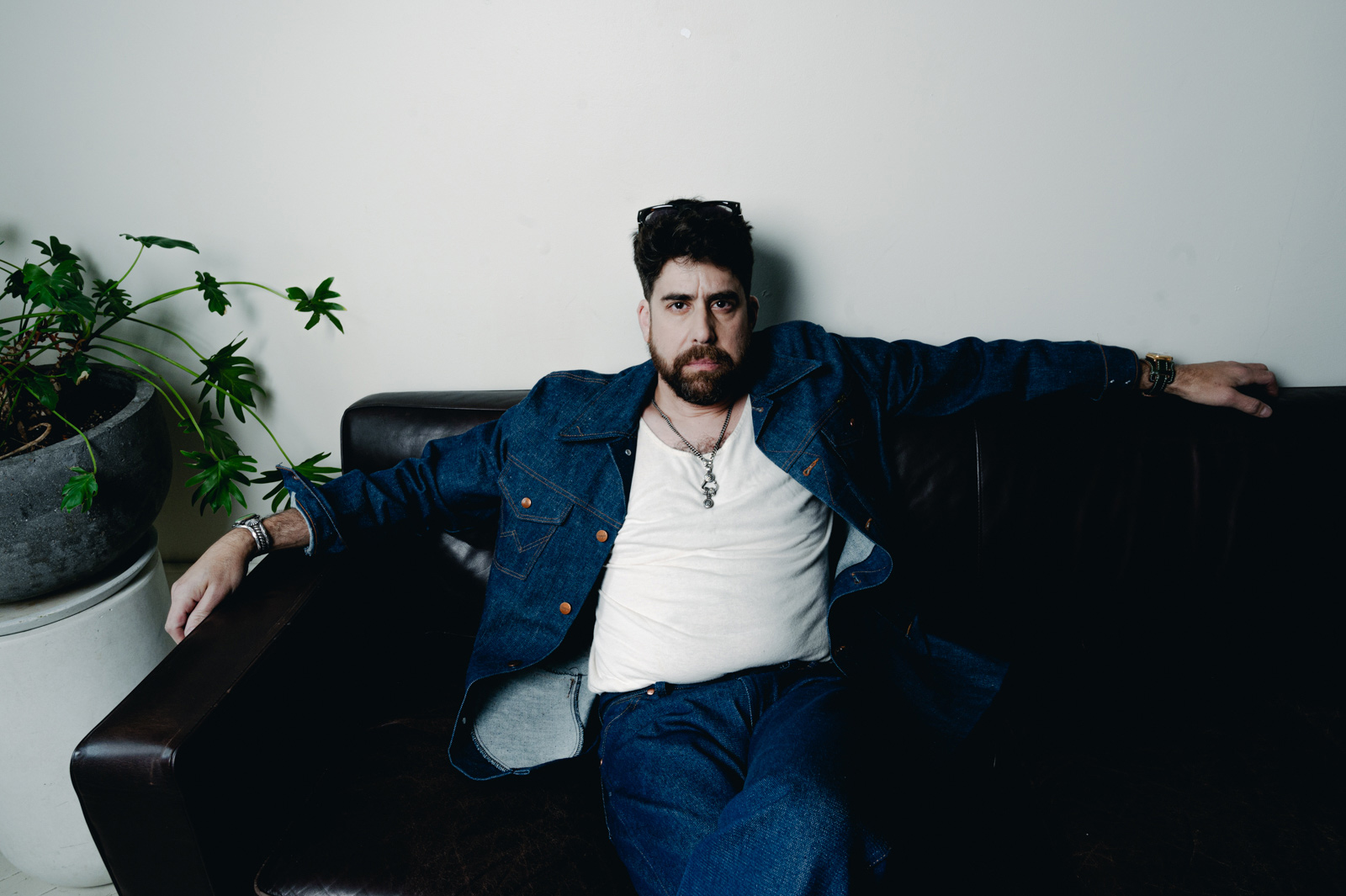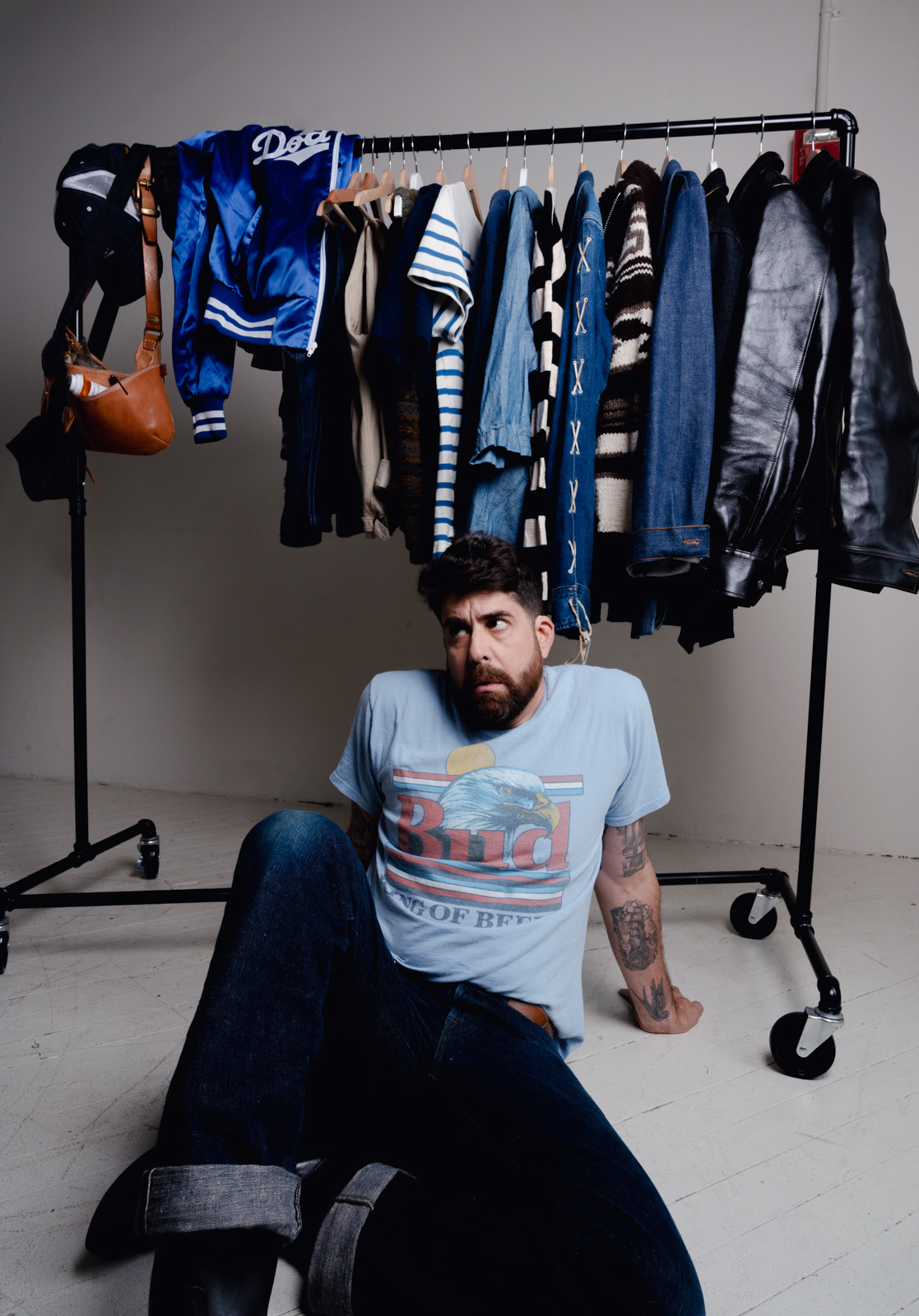Following his stint as a jury member at the Tribeca Film Festival, the actor joins Document to anatomize his storied career
Acting, for Adam Goldberg, is just as much a trade as it is a craft. Some roles fall closer to one end of the spectrum, but he generally speaks about his work in film and television without any weight of pretension. It’s an unusual attitude, especially for someone with a resumé at his caliber. His characters (often at least semi-neurotic, and always offbeat) have appeared across an array of classics; regardless of your taste, he’s more than likely graced your screen more than once: as a callous infantryman in Saving Private Ryan; as an irritable, intellectual teen in Dazed and Confused; as an only-sometimes-supportive friend in How to Lose a Guy in 10 Days; as the translator to a deaf assassin in Fargo; as the self-explanatory Crazy Eddie on Friends; as a spoiled coke addict in Entourage; or maybe as the titular Jewish pimp in The Hebrew Hammer. Goldberg’s credits go on and on and on and on—but they will never bore.
The substantial size of Goldberg’s filmography is due, in part, to an unreserved willingness to take on that which comes his way. “There’s no such thing as a steady job when you’re an independent contractor of any kind,” he says on his easy attitude toward casting (which, considering the heavyweights he works for and besides, might not actually be as easy as he claims it to be). The closest Goldberg has come to the “illusion of job security” is his current role alongside Queen Latifah on CBS’s crime drama The Equalizer, where he’s also costumed his character from his immense personal wardrobe (which, he semi-reluctantly admits, has its own room in his home).
It’s a childlike curiosity—and an equally childlike unself-consciousness—that has propelled the actor’s ever-growing list of his interests: photography, for one, where he’s generated an affinity for double-exposures; directing; screen-writing; music-making, under the moniker The Goldberg Sisters, through which he collaborates with his fictional twin; and, again, the list goes on.
Following his stint as a jury member at the Tribeca Film Festival, Goldberg joins Document to anatomize his storied career.
Megan Hullander: It’s kind of hard to find a through line across your characters. What is it that you look for in a role?
Adam Goldberg: Thirty years into this—as much as I would love to give you some sort of pro forma answer about the things I like, and how I’ve constructed my career around them—it’s more just happenstance. I think that there’s such a small percentage of working actors who have any kind of overarching control over what their career looks like; it really is up to the people that hire them. The only thing I’ve ever really felt like I’ve had any kind of agency over is the stuff that I’ve created myself, written and directed, or gotten in on the ground floor [of] and helped develop. But in terms of the acting roles themselves, it’s largely based on who I am and how I am perceived.
Certainly, my initial impetus for acting was to use it as a way of expressing my emotions, or as some sort of catharsis—even maybe as a form of therapy. But it’s pretty rare that you have that opportunity.
Megan: I would imagine that it’s easier to get there emotionally in a film like Saving Private Ryan than it is for a role on, say, Friends, but those visceral reactions you deliver are really consistent across your performances. How do you get yourself into that space, especially if it doesn’t feel like a scene is leading you into it as much?
Adam: I think some people have much easier access to their emotions, and to the spigot that controls them. Other people sort of never know what to expect. Saving Private Ryan is an interesting example. We were shooting the scene at the end of the D-Day sequence on this bluff, where those of us who survived were scavenging, and I find this Hitler Youth knife. And while we were at lunch, Spielberg walks by me and goes, ‘Hey, so, you’re gonna cry when you find that knife.’ It’s a more involved and immersive experience to throw yourself into when you’re expressing an emotion that’s familiar to you. And in some ways, I guess that is easier.
It certainly can be challenging when you’re not in the mood to be doing that. And sometimes that happens unexpectedly. I’ve never been one of those people who’s able to modulate it in a way that’s totally in control. I see my job now on The Equalizer as a way to keep my brain nimble. You’re exercising a muscle, really. Acting is using your whole body and your spirit as a conduit. Sometimes you’re using all of it, and sometimes you’re just using part of it.
Megan: Do you find your process is fairly consistent across the mediums you work with?
Adam: They feel very different to me, but I think that it’s probably the way I approach things. And whether it’s cleaning the house or directing something, it’s hard for me to do it in small measure. I’m definitely obsessive and a micromanager. But sometimes I feel like I’m doing the jobs of other people when I should really just be focusing on my craft.
Megan: Do you let yourself have hobbies? Or does everything need to be a craft of sorts?
Adam: For better or worse, I have been becoming more of a hobby-oriented person in the last couple of years. I don’t know how much this has to do with me; I think it’s a combination of having kids and being on this TV show, which has given me kind of the illusion—because there’s no such thing as a steady job when you’re an independent contractor of any kind—of having a steady job.
Megan: Even in a lot of your earliest work or smaller roles, your characters all have really distinctive personalities. Does it ever feel like you get approached for a role, and they want you to recycle a character? How do you make sure that the characters feel like distinctive people?
Adam: It’s tricky. There have not been very many instances where I’ve auditioned for the roles that you might have seen me in—which has actually been a source of frustration, because, like you’re saying, people want me for a role they’ve seen [me play]. If you’re asking Meryl Streep to do something, it’s because you know she can do anything and you implicitly trust her. If you’re gonna ask me to do something, it’s probably [because it’s] similar enough to that role you liked me in.
Oftentimes, I’ll just agree—I only have so many characters. And unless someone has really written it into a script, there isn’t much room to act on anything other than my own impulse and instinct. I certainly try not to repeat myself, but actors in general are only going to be so malleable. And the more that you work, the more it becomes a little obvious that you only have so many tricks up your sleeve. Every once in a while, there’s a guy like Paul Giamatti. We were doing Saving Private Ryan, and I had watched Private Parts right before leaving to film. I don’t know how many days we had been working together and having lunch together before I realized that was him. I was like, Holy shit. He’s very specific looking, but he’s had this incredibly eclectic career. It’s always a tightrope walk, where you don’t want to get too far out of your comfort zone and blow it, but you want to challenge the people that hired you and try to find something new.
Megan: Looking back at your life and your career, is there any one particular medium that feels like the truest expression of yourself? Or a project, picture, or song that best distills why you love it?
Adam: The first film I made, Scotch and Milk—and I could talk for hours about what I would change and how things went wrong—there was something just incredible about that experience. It feels like a kind of alter ego did it. I’m much more of a conceptualist—I don’t have a great handle on three-act structure. But I do think I have a vision. And I think that that comes across in the music I’ve made. I’ve kind of skimped on lyrics a lot of times, or left in temporary lyrics, because I’m more interested in expressing a mood. When it all comes together, that’s just magic. I take no responsibility for it.
Photography Assistant Ilana Guaraca.



